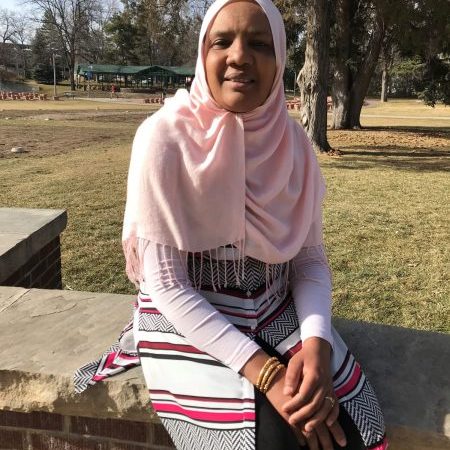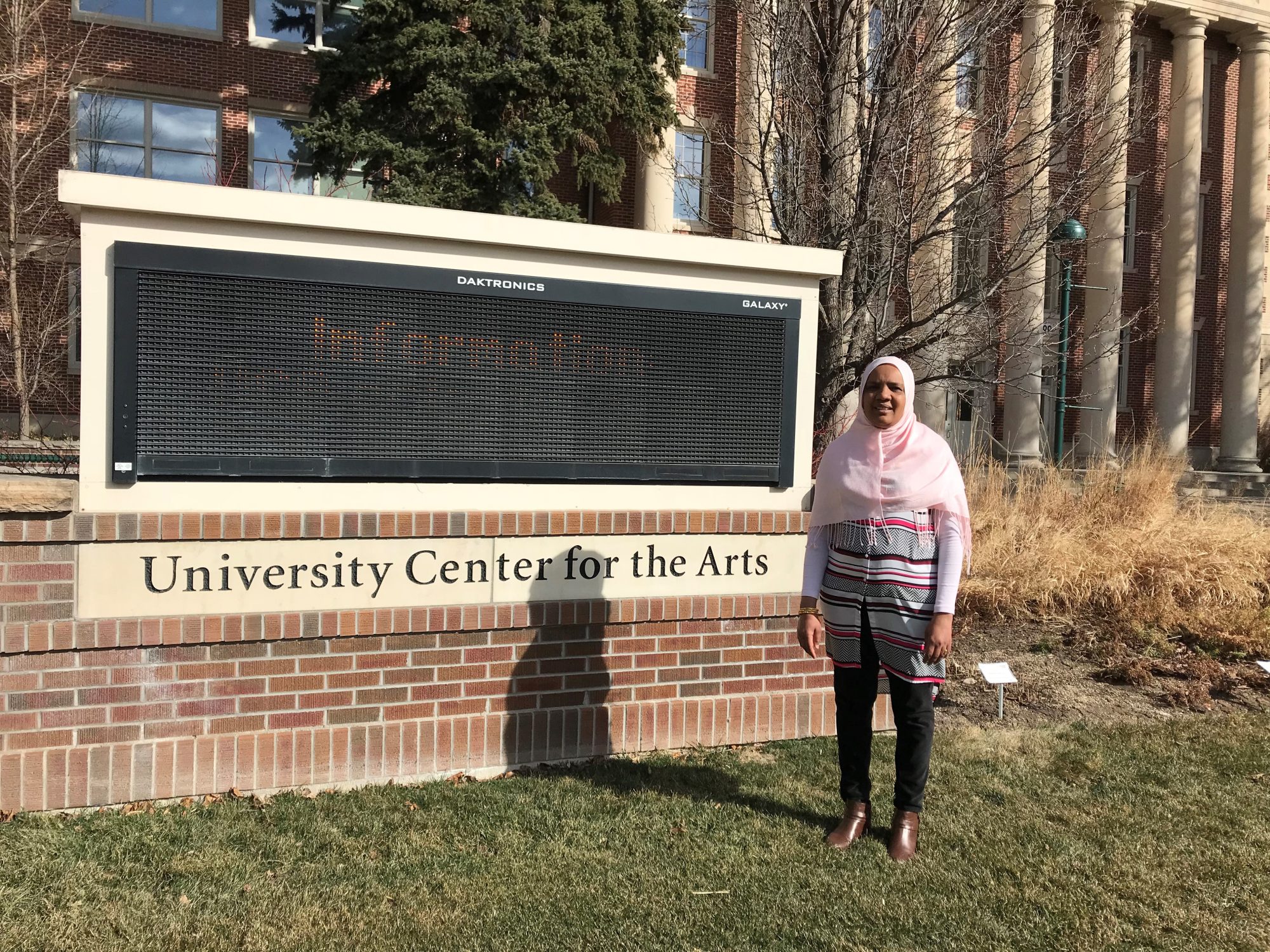“Freedom that hurts others, that is not freedom.” —Elham Musa
Elham Musa arrived in Fort Collins in 2002 from her native Sudan with two small boys—twins—and her husband. In recalling this period of her life, Musa explains, “I was afraid to go out, I thought everyone hated me.” Musa is a Muslim and was an undergraduate university student in Khartoum, Sudan, when she regularly heard stories or read in the news about how Americans hated anything involving Islam. When she obtained a visa to come to the U.S. due to her husband’s job, she had a nagging fear that she would not be accepted in America because of her religion.
Fear stayed with Musa until a simple act of kindness from one of her neighbors wiped it away. One day while leaving her apartment, one of her twins fell down and began to cry. A neighbor saw it happen and quickly ran to pick up the boy. Musa was surprised by the soothing words the neighbor spoke to her son. “From then on I didn’t feel afraid. I knew there was kindness here. My neighbor told me to not be scared [and] to say whatever I wanted to say. That I could talk to her and she would help me.” This small, welcoming encounter encouraged Musa to build a new life in America, where she has the freedom to be who she is, speak her mind, and ask for help if she needs it. “We are all the same,” she says.
Now, 15 years later, Musa’s family has grown to include a second set of twins—girls. She works at Collinwood Assisted Living facility, and is pursuing her Master’s in Arts Leadership and Cultural Management degree in LEAP Institute for the Arts at Colorado State University. The Master’s program aims to train individuals for arts leadership positions. Leadership requires more than just learning a set of tasks, such as writing a grant, or maintaining a budget. LEAP challenges students’ beliefs, and through a rigorous curriculum, asks them to question societal norms. Independence of thought is a core value that prepares students to find value in the arts in ways that are rarely articulated in public, and to advocate for the important impact that the arts have on society. Musa has found this freedom of thought in LEAP and has learned the value of challenge and critique, but,she has also confronted inner conflicts when Western values come up against her worldview as a Muslim and an immigrant.
Musa recounts her experiences in a LEAP core course entitled Law and the Arts which tackles the critical role of the arts as seen through the lens of local, state, national, and international law. One important area is freedom of speech, guaranteed in the United States Constitution, but which is often controversial where it intersects with politics, culture, and religion. The course examines current and historical cases that have determined policy relating to the arts, both in the United States and internationally. One case the class studied was that of the 2015 attack in Paris of 12 people, including 10 staff members of the French satirical weekly magazine, Charlie Hebdo. The gunmen of the attack identified themselves as members of Al-Qaeda and the attack was in response to the publication’s printing of satirical cartoons of the prophet Muhammad. The highly sensitive case is still debated because the issues are not clear-cut: When is freedom of speech the overriding value? What happens when freedom of speech conflicts with tolerance for religious expression?

Musa decided to write her analytical paper on the Charlie Hedbo case. “Hebdo left sores that will not heal for either side,” she says. And here is where Musa confronted the tough questions — ones that placed competing values at center stage. “I learned that it was not enough to know my own culture,” she says. It is the contradictory meanings of freedom of speech found in the East and the West that created the central conflict Musa sought to resolve both personally and as a scholar. In the West, and particularly the U.S., the stress is on equality of expression. No matter how egregious the speech (there are limits, of course) the belief is that everyone benefits when all viewpoints are heard. This is in stark contrast to the East where freedom of speech means the freedom of an individual not to be harmed by another person’s speech. Musa advocates for the Eastern view: “Freedom of expression should not be used to hurt somebody.”
Yet while Musa holds to the Eastern interpretation of freedom of speech on a personal level, she still believes there is a path to reconcile the different interpretations. She is a firm believer in the power of cross-cultural education as part of any healing process. Nowhere is this belief perhaps better expressed than in the opening sentence of her critical paper on the Charlie Hedbo tragedy: “The source of every crime is some defect of understanding, or some error in reasoning, or some sudden force of passion.”
Even as Musa faced the challenges of the LEAP law course as seen through her personal multicultural lens, she was not doing so alone. She credits LEAP program director, Dr. Constance DeVereaux, who taught the course, as an invaluable resource. In addressing the conflicting views inherent in the course DeVereaux sees her role as providing a delicate balance of timely support without intruding on students’ core beliefs. “I don’t think it’s my place to ask students to change their beliefs,” she says. “In the case of LEAP 670, I help them understand a text, a court case, or other legal document. I want students to feel comfortable taking in the information and then sorting out its meaning and implications for themselves.”
DeVereaux also pointed to the importance of knowing each student’s individual potential when helping to make sense of nuanced and layered issues found in the curriculum. “I know that Elham struggled with some of the issues we confronted,” she says. “(But) many people may not realize that Islam has always emphasized education. So, I think that is one of the strengths that Musa brought to the classroom – her willingness to learn about new ideas, different ways of reasoning about important issues.”

Musa’s learned journey may serve as a lesson for all of us. In an increasingly multicultural world, the importance of educating one another about what different cultures mean by free speech and finding ways to agree on a common definition may be necessary if we are to avoid more Charlie Hedbos.
“LEAP taught me not to be shy,” she says. “As a leader we are out there on the frontlines. We need to break down fears. This is our role, to engage people, and that is what I like.” Musa will seek a career in events management—to be involved in the planning of large-scale arts events such as concerts, festivals, and art exhibits. She expects her search to take her well beyond Fort Collins and Colorado. But she knows wherever she goes there is much she will take with her.
